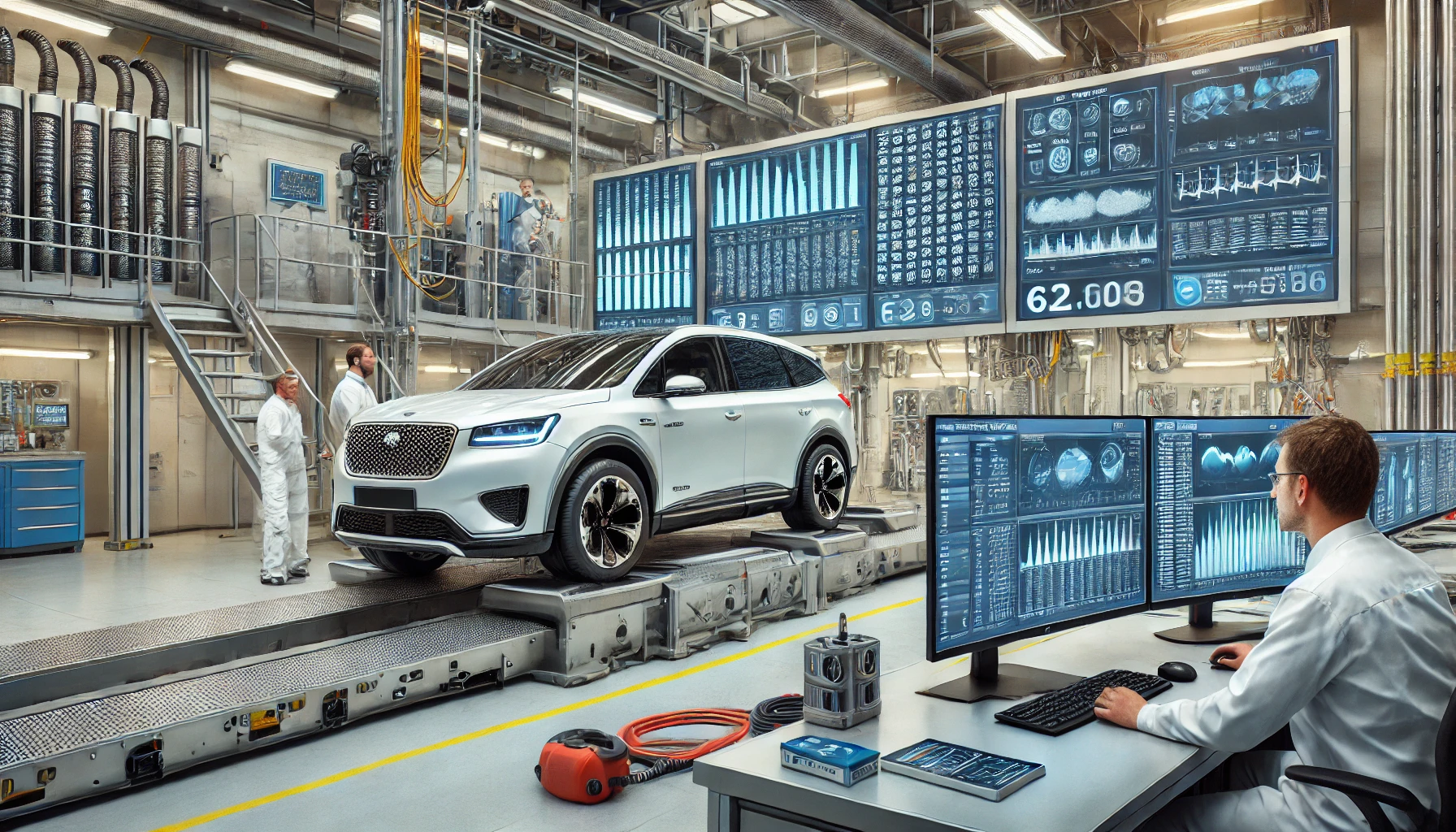
Optimizing Diesel Engines for Electric Hybrid Vehicles: Performance and Emission Testing
Diesel Specialists – Diesel engines are known for their efficiency and durability. These qualities make them ideal for hybrid systems that aim to combine diesel power with electric technology. To achieve the best results, engineers conduct rigorous performance and emission tests. These tests are critical to ensure efficiency, reliability, and sustainability in diesel hybrid optimization.
This article explores how testing helps optimize diesel engines in hybrid vehicles, focusing on key techniques and challenges.
In hybrid vehicles, diesel engines complement electric motors to improve performance and efficiency. They provide steady power, especially in heavy-duty and long-range applications. Diesel engines operate best at constant speeds, making them suitable for hybrid systems where electric motors handle variable loads.
This partnership reduces engine wear and improves overall fuel efficiency. It also allows hybrid systems to achieve lower emissions, making them more environmentally friendly than standalone diesel engines.
Performance tests evaluate how well diesel engines work in hybrid configurations. Engineers analyze key metrics such as power output, torque, and fuel consumption.
A critical focus is identifying the engine’s optimal operating range. Diesel engines in hybrids typically run at their most efficient speeds. This allows the electric motor to handle fluctuations in power demand. Engineers also test how smoothly the engine transitions between active and idle states. These transitions are common in hybrids due to frequent start-stop cycles.
Sophisticated control systems ensure seamless integration between the diesel engine and the electric motor. Engineers refine these systems during testing to enhance responsiveness and minimize delays.
Emission testing is essential for diesel hybrid optimization. Diesel engines emit nitrogen oxides (NOx) and particulate matter (PM) at higher levels than gasoline engines. However, hybrid systems reduce these emissions by keeping the engine in its most efficient range.
During tests, engineers measure NOx, PM, and carbon dioxide (CO2) levels under different conditions. They also evaluate the performance of emission control technologies such as:
These systems work together to ensure compliance with strict environmental standards. Real-world driving simulations help validate these technologies in practical scenarios.
READ MORE : Youth-Led Movements: Driving Forces for Social Equality
Calibration adjusts engine settings to balance power, efficiency, and emissions. Engineers use software tools to fine-tune performance parameters. This ensures that the diesel engine operates optimally in hybrid systems.
Energy management systems decide when to use the diesel engine or the electric motor. These systems prioritize efficiency by assigning tasks based on demand. For example, the electric motor handles low-load conditions, while the diesel engine provides power during acceleration or uphill driving.
Lightweight materials reduce the overall weight of hybrid powertrains. Using these materials improves fuel efficiency without sacrificing durability or strength.
Emission control systems like SCR and DPFs play a vital role in hybrid vehicles. Engineers optimize these systems to work efficiently with the diesel engine, ensuring lower emissions.
Optimizing diesel hybrids presents several challenges. Advanced control systems are complex and require precise calibration. Additionally, hybrid powertrains are more expensive to produce than conventional systems. Despite these hurdles, the benefits of diesel hybrid optimization are undeniable.
These systems reduce fuel consumption, lower emissions, and extend the range of hybrid vehicles. They offer a practical solution for sectors such as logistics and public transportation, where full electrification is not yet feasible.
The future of diesel hybrids looks promising. Innovations such as AI-driven control systems and improved battery technologies are making these systems more efficient. Renewable fuels like biodiesel and synthetic diesel also enhance sustainability.
By combining technological advancements with cleaner fuels, diesel hybrids can meet the demands of a low-carbon future. They will continue to play a vital role in the transition to sustainable transportation.
Diesel hybrid optimization combines the strengths of diesel engines and electric powertrains. Performance and emission testing are essential to refine these systems, ensuring they deliver efficiency and sustainability.
As technology advances, diesel hybrids will bridge the gap between conventional engines and fully electric systems. They offer a practical and eco-friendly solution for diverse applications, paving the way for greener mobility.
Dieselspecialists - Choosing the Right Diesel car has become an important decision for many first-time buyers who are looking for…
Dieselspecialists - Revolutionizing diesel engines, fuel injection systems are now central to enhancing fuel efficiency and reducing emissions. The development…
Dieselspecialists - The fall of diesel engines in the passenger car market has been one of the most significant shifts…
Dieselspecialists - The focus on reducing diesel engine emissions has never been greater, and diesel emission tech is at the…
Dieselspecialists - Warm up your engine before driving to ensure it performs at its best. The process of warming up…
Dieselspecialists - Maximizing diesel power is a goal for many diesel vehicle owners, and one of the most effective ways…